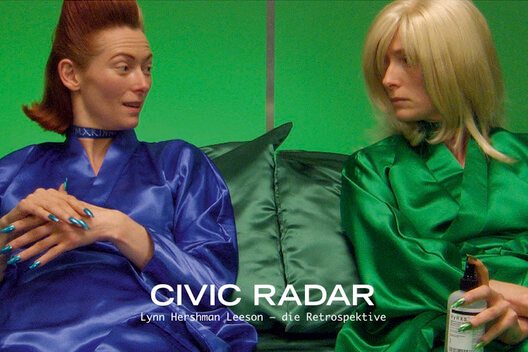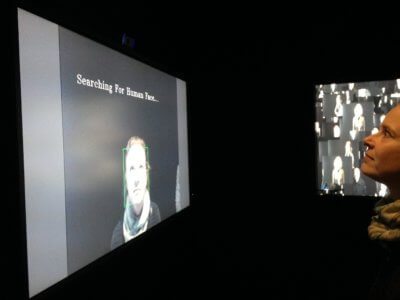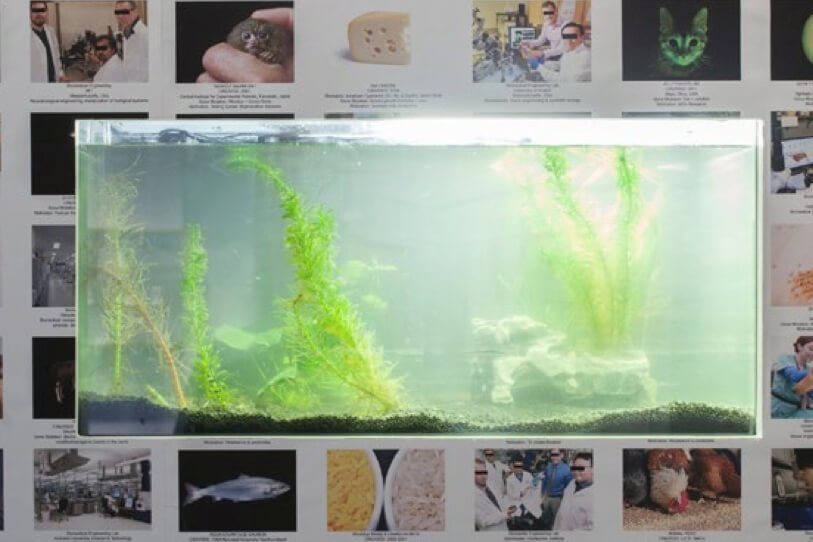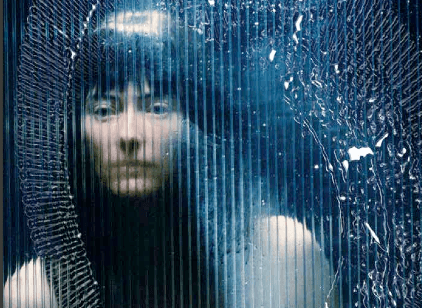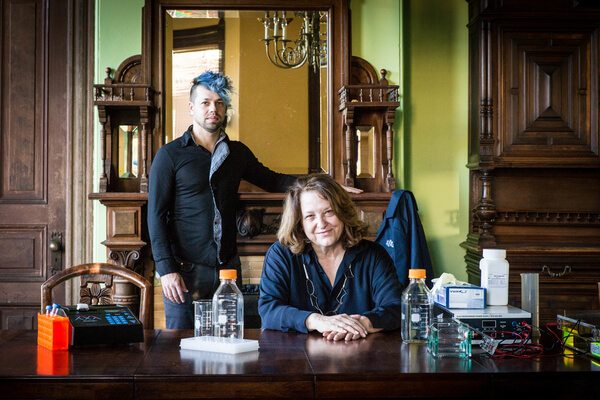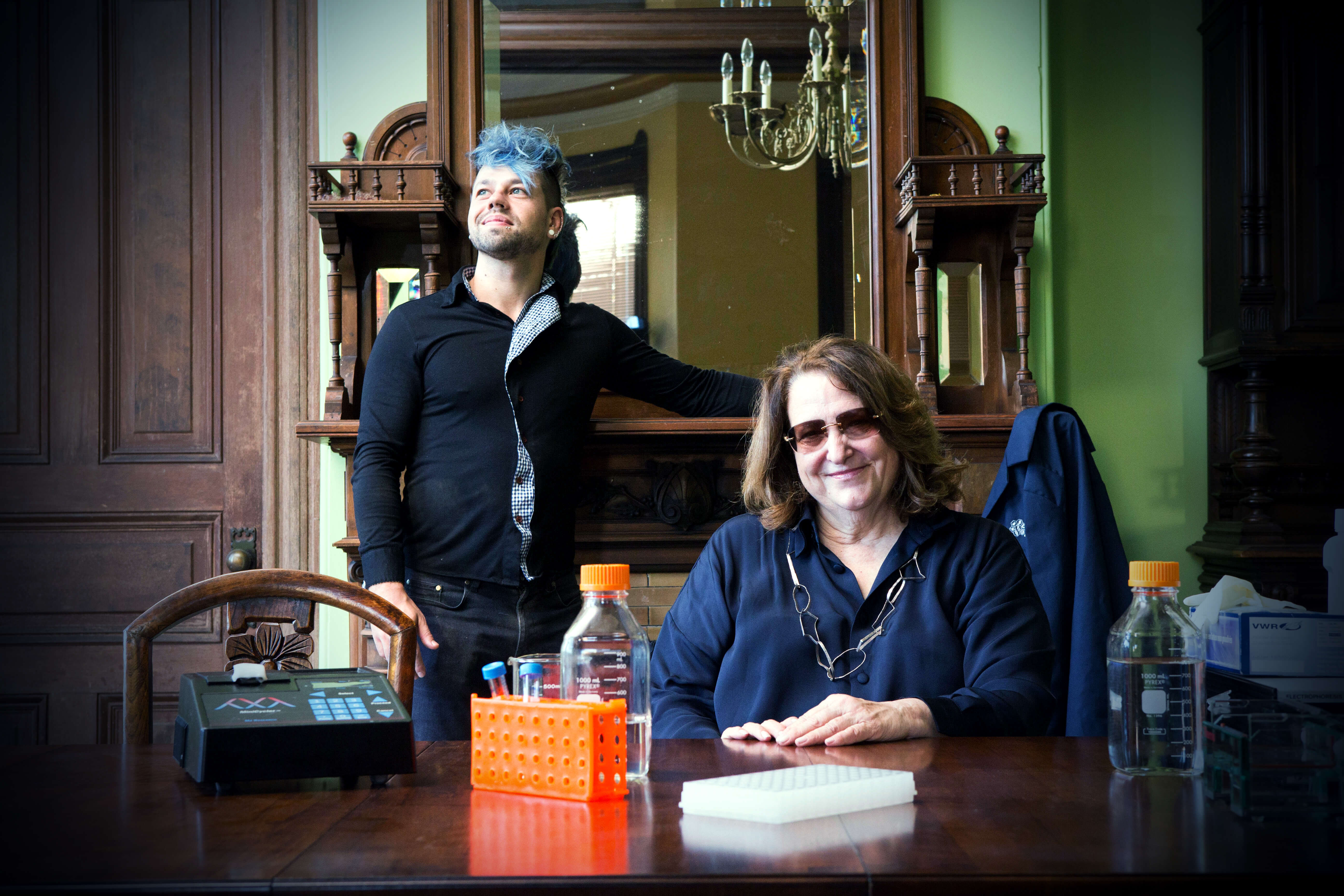At Stochastic, award-winning artist and filmmaker Lynn Hershman teamed up with NASA scientist Josiah Zayner to produce an epic transmedia artwork. The Infinity Engine encompasses an art installation, an interactive web presence, and a feature film, creating an experience that highlights the urgent and controversial implications of DNA programming.
Currently on international tour, and recently featured at ZKM, the art installation presents visitors with a replica lab containing 3D bioprinters, microscopes, recorded interviews with genetics experts, and samples of genetically modified organisms. Visitors to the installation are invited to enter “The Scanning Booth,” where a talking computer program attempts to reverse-engineer their genetics based on their physical characteristics. “The Scanning Booth” is powered by custom software written by Josiah that uses computer vision and machine learning to match human features to a genetic database. An online version that will allow web visitors to submit photos of themselves for genetic analysis is in development. “The Scanning Booth” represents the first-ever attempt to reverse-engineer genetics from images of the human face.
The feature film, The Infinity Engine, is the third in a trilogy of films begun in 1995, all written and directed by Lynn Hershman and all featuring Tilda Swinton. The trilogy includes the award-winning films Conceiving Ada and Teknolust. These films explore the implications —ethical as well as social— of the era of genetic manipulation. Lynn hopes to use data collected from “The Scanning Booth” to create a character in the third film. The Infinity Engine won the IFP Pixel Market Prize at the Power to the Pixel: Cross-Media Forum. Lisa Cortes (Precious) is producing.
